20+ Years Experience
Specialist Private Drug Rehab

The journey to addiction recovery is unique for every individual. As the complexities of addiction encompass the mind, body, and spirit, a multifaceted therapeutic approach is essential for lasting success in recovery.
Are you or a loved one struggling to overcome addiction? Discover the empowering benefits of therapy for addiction and the diverse treatment options available to help navigate the path to recovery with confidence and resilience.
In this comprehensive exploration, we delve into the core components of therapy for addiction, cognitive behavioural therapy techniques, motivational enhancement therapy, and complementary therapies that can enhance traditional addiction treatments.
Equip yourself with the knowledge and tools to recognise the signs of addiction, tailor treatment plans to individual needs, and find the right treatment program for a transformative recovery journey.
Addiction therapy, a cornerstone of recovery, integrates the following components to provide a comprehensive approach to tackling the multifaceted nature of addiction:
Effective treatment options integrate these components to target the underlying causes of addiction and focus on relapse prevention.
By addressing both the addictive substance and social factors, the mental illness and health conditions that often co-occur with drug use and abuse, as well as treating addiction itself as other mental health conditions, drug treatment programs can help individuals overcome their addiction street drugs and lead young people to a fulfilling life free from drugs.
Each component of therapy has a unique role and provides distinct benefits and support in the recovery process. For a deeper understanding, we’ll explore each therapy type and its contribution to addiction recovery.
Individual counselling, or one-on-one therapy, provides a confidential and supportive environment for individuals to explore the root causes of their addiction and develop coping strategies for recovery.
This therapy approach is instrumental in tackling not just substance abuse and substance use disorder and disorders not just the substance abuse and substance use disorder, and disorders but also coexisting mental health conditions like depression or bipolar disorder.
By working with a qualified therapist, individuals can gain insight into their addiction, construct adaptive coping mechanisms, and encourage positive transformation in their lives.
Mental and mental health counselling and counselling helps individuals increase self-esteem, improve relationships, and avoid relapse by addressing triggers and negative thoughts associated with their own substance use disorders, disorder, and other substance abuse.
Group therapy, a fundamental aspect of drug addiction treatment, provides a secure environment for individuals to share experiences, learn from peers, and cultivate a sense of community throughout recovery.
Through these self-help groups, support groups, and regular group meetings, individuals can develop coping skills, gain new perspectives, and find support in knowing they are not alone in their struggles.
The benefits of group therapy include:
Family therapy, an essential component in addiction recovery, addresses addiction’s impact on relationships and aids families in understanding and supporting their loved one’s path to sobriety.
Addiction affects not only the individual but also their family members, often resulting in strained relationships and negative consequences for the entire family.
Through family counselling, therapists can help families identify and address unhealthy relational patterns, improve communication, and provide support during the recovery process.
By engaging the whole family or family member in the treatment plan, individuals can find a solid support system and a more stable environment, increasing the likelihood of successful recovery and preventing relapse.
Medication-assisted treatment (MAT) is an evidence-based approach that has been demonstrated to be effective in treating substance use disorders.
MAT combines the use of medications, such as methadone, buprenorphine, and naltrexone, with counselling and behavioural therapies to provide a comprehensive approach to addiction treatment.
Research has demonstrated that MAT is successful in enhancing treatment outcomes and lessening the likelihood of relapse.
By managing withdrawal symptoms and reducing drug cravings, individuals can focus on their recovery and develop the necessary skills for long-term sobriety.
Yet, prior to initiating treatment, consulting with a healthcare provider to discuss the risks and benefits of medication-assisted treatment is highly recommended.
Cognitive Behavioral Therapy (CBT) serves as an effective instrument in treating drug addiction. By utilising cognitive behavioural therapy techniques, it enables individuals to treat drug addiction by:
CBT techniques can be applied to various types of addiction, from alcohol addiction to drug abuse. For example, individuals struggling with alcohol addiction can learn strategies to reduce exposure to alcohol, such as avoiding places where alcohol is served, and develop coping skills to manage distress when in the presence of alcohol.
By equipping individuals with practical tools for managing triggers and cravings, CBT can greatly improve the chances of long-term recovery.
Dialectical Behavior Therapy (DBT) is a specialised form of CBT that focuses on emotional regulation, mindfulness, and interpersonal effectiveness to support addiction recovery.
By teaching individuals skills for emotion regulation, distress tolerance, and interpersonal effectiveness, DBT helps them manage difficult emotions and foster healthier relationships.
DBT has been shown to be effective in treating various mental health issues, including substance use disorders and eating disorders.
By incorporating mindfulness practices and emphasising the importance of self-awareness, DBT can help individuals better understand their emotions and develop more adaptive ways of coping with triggers and cravings, ultimately supporting their recovery journey.
Motivational Enhancement Therapy is a therapeutic approach that assists individuals in finding their intrinsic motivation to change their behaviours and adhere to their recovery objectives.
This therapy assists individuals in committing to their recovery journey by using healthy behaviours, identifying compelling reasons for abstinence and setting goals for heightened motivation.
Often used in combination with other therapies, such as CBT and DBT, Motivational Enhancement Therapy employs techniques like motivational interviewing to facilitate change.
By addressing ambivalence and fostering a positive self-image and efficacy, this therapy can help individuals overcome barriers to change, leading to a more successful recovery process.
Complementary therapies, such as art therapy, equine therapy, and yoga/meditation, can enhance traditional addiction treatments by addressing the emotional, physical, and spiritual aspects of recovery.
The inclusion of these therapies into a comprehensive treatment plan provides individuals with added support and strategies for managing drug cravings well, reducing stress, and boosting emotional well-being.
These alternative therapies can be particularly beneficial for individuals who find traditional talking therapies challenging or insufficient in addressing their unique needs.
By offering a diverse range of treatment options, complementary therapies can help individuals find the most effective treatment approach for their specific addiction and recovery journey.
Art therapy allows individuals to express and process emotions and trauma through creative outlets, supporting their recovery journey.
By engaging in artistic activities, such as drawing, painting, or sculpting, individuals can explore their feelings, alleviate stress, and foster self-awareness and personal development.
In combination with other forms of therapy, art therapy can provide a safe space for individuals to process difficult emotions and experiences related to their addiction.
As they develop new ways of expressing themselves and processing emotions, individuals can find comfort and healing in the creative process, contributing to a more successful recovery.
Equine therapy involves interacting with horses, promoting relaxation, emotional growth, and a sense of responsibility during addiction recovery.
By engaging in activities such as grooming, riding, and caring for horses, individuals can develop essential life skills, augment self-esteem, and mental health issue and enhance emotional well-being.
The bond formed between individuals and horses in equine therapy can provide a source of unconditional love and support, helping to alleviate stress and manage difficult emotions.
The sense of responsibility associated with caring for animals can also foster a sense of purpose and accomplishment, further supporting the recovery process.
Yoga and meditation can play a significant role in addiction recovery by helping individuals manage stress, improve mental clarity, and develop mindfulness skills essential for long-term recovery.
Through physical postures, breathing exercises, and meditation techniques, yoga and meditation promote overall well-being and balance.
By incorporating yoga and meditation into their recovery plan, individuals can find a holistic approach to healing and develop a strong foundation for maintaining sobriety.
As they cultivate mindfulness and self-awareness, individuals can:
Adopting healthy behaviours can be a powerful tool in supporting a successful recovery journey.
Timely intervention and treatment hinge on recognising addiction signs, which can vary and often impact self-esteem, relationships, and overall well-being.
The indicators of drug abuse, substance abuse substance use disorders and, and addiction can differ depending on the substance or activity, but common behaviours and signs include changes in mood and behaviour, secrecy, and neglect of responsibilities. Recognising these signs is crucial in addressing any serious substance use, abuse and substance use other disorders and disorder effectively.
It can be difficult to recognise the signs of addiction, as those affected may attempt to conceal their behaviour from their loved ones.
By raising awareness of the signs and risk factors associated with addiction, individuals and their families can take the necessary steps to seek help and begin the journey to recovery.
Adapting treatment to individual needs is a key part of effective addiction recovery, given that no one-size-fits-all approach exists.
By considering factors such as the severity of addiction, family counselling, personal preferences, family counselling and available resources, an appropriate combination of therapies and support systems can be developed to meet the unique needs of each individual.
Customised treatment plans may include a combination of:
This ensures a comprehensive approach to recovery. By addressing the diverse needs of chronic illness in each individual, personalised treatment plans can greatly improve the chances of long-term recovery and overall well-being.
Identifying the right treatment program requires considering factors like addiction severity, personal preferences, and resource availability to optimise the chances of successful recovery.
It’s essential to research various treatment options, consult with professionals, and be open to trying different approaches until the most effective treatment program is identified.
When selecting the right treatment program, it’s crucial to consider aspects such as the program’s success rate, the qualifications of the staff, and the availability of ongoing support and aftercare services.
By taking the time to find the most suitable treatment program, individuals can greatly increase their chances of overcoming addiction and achieving lasting recovery.
Cognitive Behavioral Therapy (CBT) is the most successful psychological therapy for addiction, as it has been used to successfully treat addictions in many different settings and has been found to be highly effective.
CBT works by helping individuals identify and change negative thought patterns and behaviours that contribute to their addiction.
It also helps them develop healthier coping strategies and build a more positive outlook on life. By addressing the underlying causes of their drug use and the drug addiction at first, CBT can help individuals break free from their own drug use and drug addiction, and lead a
Addiction therapy typically involves medication combined with talking therapies such as Twelve-Step Facilitation (TSF), Interpersonal Therapy (IPT), Recovery planning, Relapse prevention and education, to promote abstinence and help individuals manage the consequences of addiction.
These therapies can help individuals identify triggers, develop coping strategies, and build a support network to help them stay on track with their recovery.
They can also provide guidance on how to manage cravings and prevent relapse. Additionally, they can help individuals develop healthier lifestyle habits and build a more positive outlook on life.
To overcome addiction, one must first admit they have a problem, reflect on their addiction, seek professional support, appreciate the benefits of sobriety, and identify triggers.
Additionally, changing one person’s life environment, exercising regularly, setting a quit date, distracting oneself, and creating a support network can be effective action steps for quitting an addiction.
Psychotherapy has been scientifically proven to be an effective tool for treating addiction, helping those suffering from substance use disorder to achieve long-term recovery.
With the right help, those struggling with addiction can definitely reclaim their self-worth and control in their lives and relationships.
Addiction therapy consists of individual and group counselling, family therapy, and medication-assisted treatment, providing comprehensive support to those in recovery.
These treatments are designed to help individuals address the underlying causes of their addiction, develop healthier coping skills, and build a strong support system to help them stay on track with their recovery.
In conclusion, addiction recovery is a multifaceted journey that requires a comprehensive approach, addressing the mental, emotional, and physical aspects of addiction.
By understanding the core components of addiction therapy, engaging in evidence-based techniques such as CBT and DBT, and exploring complementary therapies like art therapy, equine therapy, and yoga/meditation, individuals can create a tailored treatment plan that caters to their unique needs and fosters long-term recovery.
As you embark on your recovery journey, remember that finding the right treatment program and support system is essential for success.
Equip yourself with the knowledge and tools to recognise the signs of addiction, tailor treatment plans to individual needs, and find the right treatment program for a transformative recovery journey. With determination, resilience, and the right support, lasting recovery is possible.
There are a range of other services that we can provide. Have a look at the list below for more information:





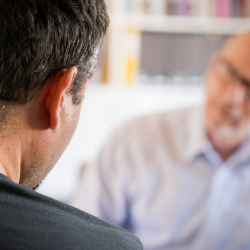


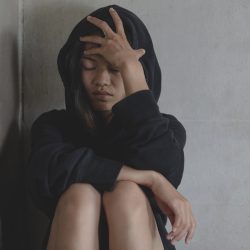





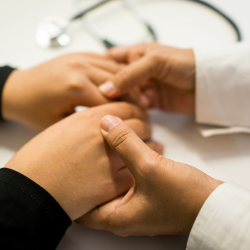



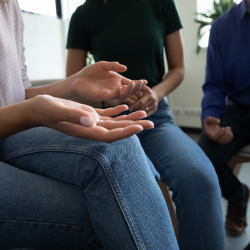
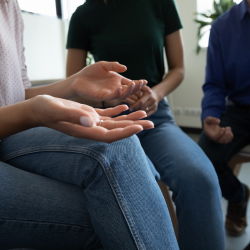



We Aim To Reply To All Enquiries With-in 24-Hours